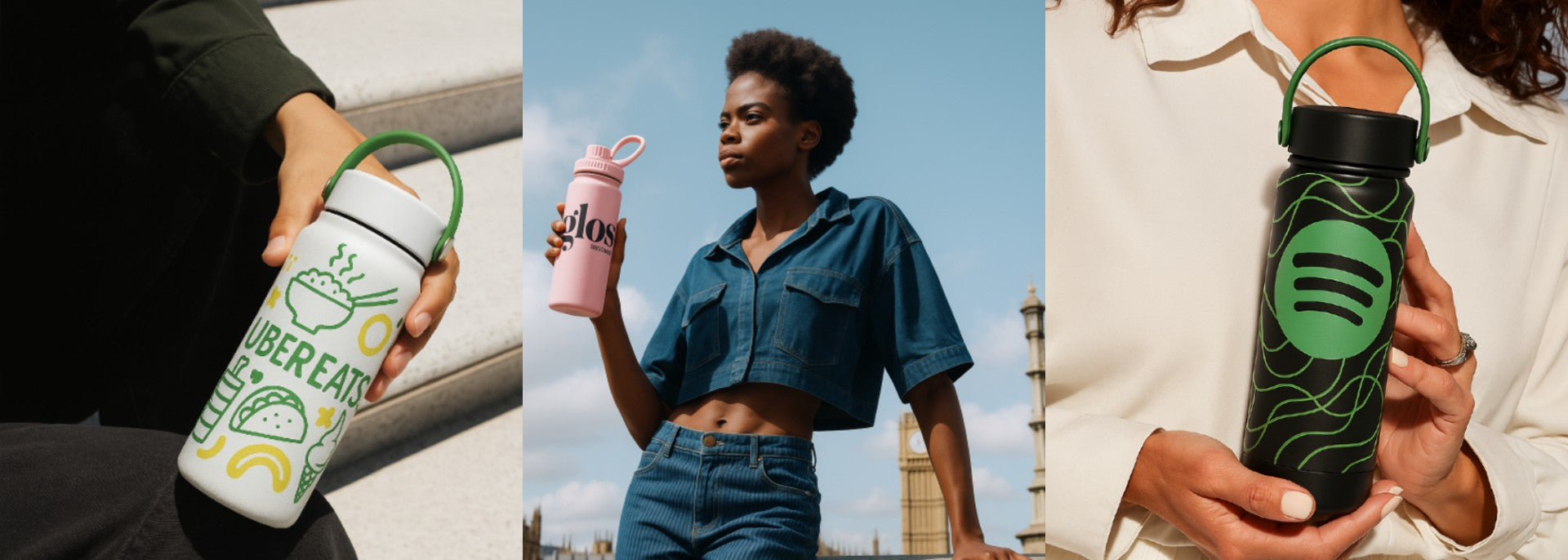Rethinking impact - what you track shows what you value
Not every meaningful sustainability effort makes headlines. Behind the scenes of carbon reporting and bold net-zero statements, the small, daily behaviours in the workplace — what gets thrown away, what we drink from, and how we fuel our people - play a serious role in the overall environmental picture.
For ESG leaders, this is an opportunity. Office waste and hydration habits may not feel groundbreaking, but they can generate some of the most visible, measurable, and culturally meaningful wins. They’re tangible. They’re trackable. And when approached with intention, they offer a new lens on everything from procurement to employee wellbeing.
Here are four key metrics that bridge sustainability, engagement, and real progress - plus how to use them to move your ESG goals from intention to implementation.
1. Waste diversion rate – how much you're keeping out of landfill
Your waste diversion rate is a foundational sustainability metric. It shows how much of your total waste avoids landfill through recycling, composting, or reuse.
A healthy benchmark? Leading organisations regularly divert 70% or more of their waste. Most companies, however, fall short, averaging around 40%. That gap doesn’t just represent environmental harm, it’s a clear sign of missed efficiency and unnecessary cost.
To improve and measure this rate:
- Start with a full waste audit (or partner with your building’s waste vendor)
- Track total waste vs. diverted waste by weight, ideally each quarter
- Review contamination rates in your recycling streams
Companies that prioritise this area often unlock 15–25% savings in waste management costs. That’s real financial impact, not just feel-good progress.
2. Single-use plastic reduction - seeing your footprint clearly
If we were to take a look at office waste, single-use plastics play the villain in plain sight. Those innocent-looking water bottles and disposable coffee cups typically constitute 30–40% of workplace plastic consumption. It is a startling figure that becomes even more dramatic when visualised: picture a third of your office waste bins filled with items designed for mere minutes of use.
To get a handle on this challenge, smart organisations focus on two key data streams. First, they analyse procurement patterns, tracking monthly orders of disposable items against employee headcount.
Second, they conduct regular waste stream analyses to verify that reduction efforts translate into actual behavioural change. The gap between these two metrics often reveals surprising insights about workplace consumption patterns.
Progressive companies set ambitious yet achievable targets in this space. A typical roadmap starts with a 25% reduction in year one – challenging enough to demand real change, but attainable enough to build momentum.
When reaching year three, leading organisations push for 75% reductions, fundamentally transforming their workplace culture around single-use plastics.
What makes this metric particularly powerful is its visibility. Unlike many sustainability initiatives that happen behind the scenes, plastic reduction creates daily touch points with employees.
When organisations highlight collection points, celebrate reduction milestones, and transform abstract environmental goals into tangible workplace achievements.
3) Reusable bottle adoption rate - tracking culture in action
A reusable water bottle is a small item. But tracking how many people use one daily tells you a lot about your company’s approach to sustainability.
Companies that make this a priority see adoption rates of 65% or more — a threshold where sustainability becomes the norm.
Ways to measure:
- Survey employees about their hydration habits
- Track distribution of company-provided reusable bottles
- Monitor usage at water refill stations
Reusable adoption is about culture, not compliance. It shows if sustainability is a value that actually lives in the day-to-day. And interestingly, high adoption often correlates with higher employee satisfaction scores - a sign that your ESG efforts are resonating where they matter most.
4. Hydration engagement score and its impact on wellness and productivity
This is a newer, softer, but still powerful metric. A hydration engagement score pulls together:
- Smart water station usage data
- Survey responses about hydration awareness
- Participation in wellness or hydration-focused challenges
Hydration affects cognitive performance, energy, and even mood. Studies show that hydrated employees report up to 20% higher energy levels — yet most offices don’t measure it.
Make it part of your culture:
- Launch hydration education campaigns
- Include a bottle in every new hire kit
- Track participation in wellness activities linked to hydration
It’s a great way to demonstrate how environmental investments support human capital, too. You’re not just cutting waste — you’re supporting performance.
Why these metrics matter more than ever
Collectively, these four metrics help companies:
- Report on environmental impact in ways that are tangible and relatable
- Understand employee behaviour and engagement with ESG values
- Make better, data-backed decisions about budget and culture investments
They also make your sustainability reporting more credible. When you can show measurable progress, tied to both carbon impact and team wellbeing, it strengthens your ESG story for both investors, clients, and employees.
Implementing measurement systems that drive improvement
Success in ESG measurement begins with establishing reliable baselines. Before launching any new initiatives, organisations need comprehensive waste audits, employee surveys, and understanding of their starting point. Without this foundation, even the most ambitious programmes risk building on shifting sands.
The most effective measurement approach comes from cross-functional collaboration. When facilities teams partner with HR, and sustainability departments, they create fortified data collection systems that capture both the technical and human elements of these initiatives. This collaborative approach makes sure that measurements reflect the full scope of programme impact.
How Just Bottle supports your ESG metrics
At Just Bottle, we design products that help organisations build lasting hydration habits and reduce single-use waste in a way that feels easy. Our insulated stainless steel bottles are made for real, everyday use - keeping drinks hot or cold for hours, no matter the season, commute, or meeting schedule.
When your team has access to a high-quality reusable bottle that actually works, it’s easier to swap disposable cups and bottles for something better. But it’ more about what it represents. A shift in routine. A signal of shared values. A simple, everyday tool that aligns your environmental goals with employee experience.
Here’s how we support your sustainability goals:
- Plastic-offsetting programmes that contribute to global reduction efforts
- Custom branding that keeps your logo visible—without wasteful gimmicks
- Bulk distribution tailored for onboarding kits, office rollouts, or events
- Every bottle also contributes to our ocean plastic collection initiatives, helping recover plastic waste and support local employment in vulnerable regions
When you choose Just Bottle, you're not just ticking a box for ESG - you’re making sustainability feel personal, practical, and impactful. One bottle at a time.
Measure what matters
Sustainability lives in the systems we build — what we prioritise, what we track, and how we act on what we learn. It’s all about the smaller, consistent choices that shape daily life at work.
These four hydration and waste metrics give ESG leaders something powerful: clear visibility into what’s working, where habits need nudging, and how team culture aligns with environmental goals.
When you start tracking the right things, you start shifting the right behaviours. And that’s where real change takes root — where sustainability becomes part of how your team operates, not just what the company says it values.
Want to boost your hydration and waste metrics in one move? Explore our custom reusable bottles designed to support office sustainability from day one.
FAQ's
What are ESG metrics and why are they important?
ESG metrics are measurable data points that help organisations track their performance on environmental, social, and governance factors. They are essential for understanding impact, setting goals, and demonstrating progress to stakeholders such as investors, clients, and employees.
How can hydration habits be measured using ESG metrics?
Hydration can be tracked through metrics like reusable bottle adoption rates and hydration engagement scores. These show how employees interact with wellness initiatives and whether sustainability is part of daily workplace culture.
What ESG metric helps reduce single-use plastic in the office?
Tracking single-use plastic reduction is a key ESG metric. By analysing procurement data and conducting waste audits, companies can monitor their plastic footprint, set reduction goals, and measure real behavioural change across the team.
Why should companies track waste diversion as part of ESG metrics?
Waste diversion rate shows how much office waste is kept out of landfill through recycling, composting, or reuse. It’s a foundational ESG metric that reflects both environmental responsibility and cost efficiency in workplace operations.







